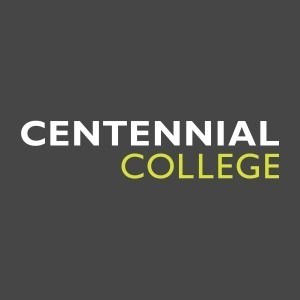Photos of university / #myucalgary
International Indigenous Studies is the examination of the experiences, culture and artistic endeavors, and current status of Indigenous people from around the world. Interdisciplinary in nature, International Indigenous Studies draws from the Social Sciences, Humanities, Fine Arts, Social Work, Education, and Communication and Culture to study the experience of Indigenous peoples.The International Indigenous Studies degree combines instruction in both Indigenous and Western worldviews. This program is designed to attract both Indigenous and non-Indigenous persons in the interests of reaching a new understanding of each other. The program is designed to appeal to prospective students who are enrolled in Indigenous post-secondary institutions in Alberta and who may wish to complete their degree at the University of Calgary.The Co-op program allows you to alternate in-school learning with 12 to 16 months of full-time paid work experience.
Field of study: Aboriginal Studies
The Bachelor of Arts in International Indigenous Studies at the University of Calgary offers a comprehensive and multidisciplinary exploration of Indigenous histories, cultures, and contemporary issues from around the world. This innovative program provides students with the opportunity to gain a deep understanding of Indigenous peoples’ perspectives, sovereignty, resilience, and contributions within a global context. The curriculum integrates courses from anthropology, history, political science, and cultural studies, emphasizing Indigenous epistemologies and methodologies. Students will critically examine topics such as colonization, reconciliation, language revitalization, environmental stewardship, and Indigenous rights, preparing them for careers in Indigenous governance, advocacy, education, and community development. The program encourages active engagement with Indigenous communities and promotes respectful, ethical research practices. Through a combination of immersive coursework, experiential learning, and community involvement, students develop cultural competencies, analytical skills, and a nuanced understanding of Indigenous issues worldwide. The program aims to foster respectful dialogue, promote social justice, and support Indigenous self-determination. Graduates will be equipped with the knowledge and skills necessary to contribute meaningfully to Indigenous and broader societal contexts, advocating for equity and reconciliation. The International Indigenous Studies program at the University of Calgary is committed to fostering an inclusive educational environment that values Indigenous knowledge systems and perspectives, preparing students to become informed global citizens dedicated to positive change.
Program requirements for the Bachelor of Arts in International Indigenous Studies at the University of Calgary typically include completing a total of approximately 120 credit hours over the course of four years. Students are expected to fulfill University General Education Requirements, which encompass a broad range of disciplines including humanities, sciences, and social sciences to ensure a well-rounded education. Within the program core, students must complete foundational courses in Indigenous history, culture, and philosophy, often including introductory classes that explore indigenous worldviews and contemporary issues faced by Indigenous communities.
In addition, the curriculum emphasizes language acquisition, with options to learn Indigenous languages such as Cree, Blackfoot, or others, depending on student interest and availability. Departmental requirements usually include courses in Indigenous governance, legal issues, and ethical considerations related to Indigenous sovereignty and rights. Students are encouraged to participate in experiential learning opportunities, including community engagement, fieldwork, or internships with Indigenous organizations, to gain practical understanding and cultural competence.
Electives allow students to focus on specific regions, such as Inuit, Métis, or First Nations peoples, and may include topics like Indigenous health, arts, or education. To graduate, students must maintain a minimum cumulative GPA as specified by the Faculty of Arts, complete a capstone project or thesis that demonstrates critical understanding and research skills, and possibly undertake a supervised community-based project. Overall, the program aims to develop students’ knowledge of Indigenous histories, cultures, and contemporary issues, fostering respect and advocacy for Indigenous rights and self-determination.
Want to improve your English level for admission?
Prepare for the program requirements with English Online by the British Council.
- ✔️ Flexible study schedule
- ✔️ Experienced teachers
- ✔️ Certificate upon completion
📘 Recommended for students with an IELTS level of 6.0 or below.
The University of Calgary offers a variety of financing options for students enrolled in the Bachelor of Arts in International Indigenous Studies program. Prospective students are encouraged to explore scholarships, bursaries, and financial aid opportunities to support their studies. The university provides entrance scholarships based on academic achievement, which can significantly reduce the financial burden for new students. Additionally, there are numerous faculty-specific awards and recognition programs that reward excellence in Indigenous Studies. For students demonstrating financial need, the university offers bursaries and emergency funding options designed to assist during unforeseen circumstances.
Furthermore, the University of Calgary participates in government loan programs, including federal and provincial student loan plans, which provide low-interest loans to eligible students to cover tuition fees, books, living expenses, and other costs associated with pursuing higher education. Many students also take advantage of work-study opportunities, allowing them to gain valuable work experience on campus while earning money to fund their education. The university encourages students to consult the Financial Services department for personalized advice and assistance in navigating available funding options.
Students enrolled in the International Indigenous Studies program are also encouraged to seek external funding sources, such as indigenous community scholarships, private foundations, and industry sponsorships that support Indigenous education. These external sources often have application processes and eligibility criteria, so early research is recommended. Additionally, some students may qualify for co-op programs and internships that not only provide practical experience but also financial compensation.
To further support students financially, the university has developed a comprehensive financial literacy program that helps students manage their budgets, understand debt, and plan for long-term financial stability. Information about deadlines, application procedures, and eligibility criteria for various financial aid options is available through the university's Financial Services website and the Indigenous Recruitment and Support Office.
Overall, the University of Calgary is committed to making Indigenous studies accessible by offering a range of financial support mechanisms. Students are advised to begin planning early and to utilize all available resources to ensure they can focus on their academic and community engagement goals without undue financial stress.
International Indigenous Studies at the University of Calgary offers a comprehensive and interdisciplinary approach to understanding Indigenous cultures, histories, and contemporary issues on a global scale. This program aims to provide students with a deep understanding of Indigenous worldviews, their diverse traditions, and the challenges faced by Indigenous communities worldwide. Through a combination of lectures, seminars, and experiential learning, students explore topics such as Indigenous politics, oral traditions, language revitalization, and social justice movements. The curriculum is designed to foster critical thinking and cultural competency, preparing graduates for careers in policy, advocacy, education, or further academic research. The program also emphasizes Indigenous-led research methods and encourages partnerships with Indigenous communities to promote respectful and meaningful engagement. Students have opportunities to participate in Indigenous cultural activities, community projects, and international study trips, enhancing their practical understanding and cross-cultural skills. The program’s faculty includes experts in Indigenous studies, anthropology, history, and political science, many of whom have active collaborations with Indigenous organizations. Graduates of the program are equipped to contribute thoughtfully to discussions on Indigenous rights and sovereignty, and to work towards reconciliation initiatives globally. Overall, International Indigenous Studies at the University of Calgary is committed to fostering a respectful, inclusive, and globally aware perspective on Indigenous issues, aimed at creating meaningful impact in local and international contexts.




